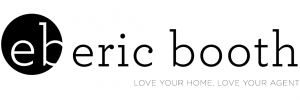Types of Mortgages
A mortgage is a loan you can take out to pay for your house or condo. A mortgage typically pays for 80% of the cost of your new home, requiring you to make a down-payment of at least 20%. This may seem daunting but many people in search of a new home are in the process of selling their old one. The sale of your existing home can be used to make the down payment on your new one. Mortgages are serious business. It will likely be one of the biggest loans you’ll ever have. That’s why shopping around, weighing your options, and choosing the right mortgage can end up saving you thousands of dollars down the road. Let’s take a look at some of the different types of mortgage options as well as their pros and cons to get an idea of which might be the best choice for you!
Fixed-Rate Mortgage
A fixed-rate mortgage is defined as having an interest rate which remains unchanged throughout the course of loan repayment. Payments are made in intervals (typically weekly, biweekly, or monthly) over the course of several years. When you first take out a mortgage, you will agree on the amount of the loan, the intervals with which you will make payments, the number of years the loan will be repaid over (10, 15, 20, 30, etc.), and the interest rate.
Pros: The biggest benefit of fixed-rate mortgages is their security. If interest rates on mortgages go up across the board, you will be safe in knowing that yours will stay the same.
Cons: Should interest rates decrease, you will still be left paying a higher amount. You will have to refinance in order to adjust your existing rate.
Adjustable-Rate Mortgages (ARMs)
Adjustable-rate mortgages mean that your interest rate will go up and down depending on an index (a method of measuring how much interest rates should be based on the comparison to a number of different economic factors). Luckily, ARMs have caps on either end to prevent the interest rate from rising or falling too far in either direction. ARMs are best suited for those who plan on moving before paying the mortgage in full.
Pros: ARMs typically allow you to get more money for your loan. The initial interest rate is often lower and will increase over time. If you’re planning on moving again before paying the loan in full, ARMs are a great way to pay less each month before paying out the loan with the sale of your house.
Cons: You will always be at the mercy of the changing interest rate. You should expect the rate to increase over time. If you are unsure of your financial system now or in the near future, you may benefit more from the safety and security of a fixed-rate mortgage.
1-yr. Treasury ARM
With this type of mortgage, your interest rate is fixed for a year before it becomes adjustable based on the treasury average index (plus the margin of the loan). This type of mortgage is repaid over the course of 30 years.
Pros: You can greatly benefit from the rates going down. If you feel safe in thinking that this will be the case, 1-yr treasure ARMs may be right for you.
Cons: In this case, the margin is working against you as it is added to the index. While you may benefit greatly from the interest rates going down, you stand to lose more money than you would with other types of mortgages should the rates increase.
Intermediate ARM
An intermediate (or hybrid) ARM is similar to a 1-yr treasure ARM. In this case, however, the interest rate is fixed for a longer period of time. These loans are specifically named by the time the interest rate is fixed vs. the frequency with which the loan may be adjusted after this period. For example, a 4/1 ARM means you will have a fixed interest rate for four years before the rate becomes adjustable (and may be adjusted once every year). The adjusted interest rate is based on an index just like the 1-yr treasure ARM (plus the loan margin). It is also paid out over the course of 30 years.
Pros: Just like other ARMs, you benefit when the interest rate goes down.
Cons: Similarly, you can lose more money when the rate goes up.
Flexible Payment Option ARM
This type of mortgage allows you to choose different payment methods based on your current financial situation. There is a cap on how frequently you can make payment method changes.
Pros: This is the perfect type of loan for people whose income is not steady and predictable such as people working on a commission, contract, or freelance basis.
Cons: Your interest rate is not always accounted for with these types of loans. Depending on how and when you change your payment methods, you could end up paying substantially more in the long run.
We will constantly be adding to and expanding this list. If you are interested in learning more about a specific type of mortgage (or if you need someone to help you navigate the complexities of buying or selling your home) contact Eric Booth Realty Group.












